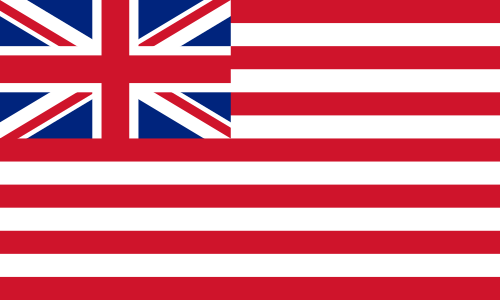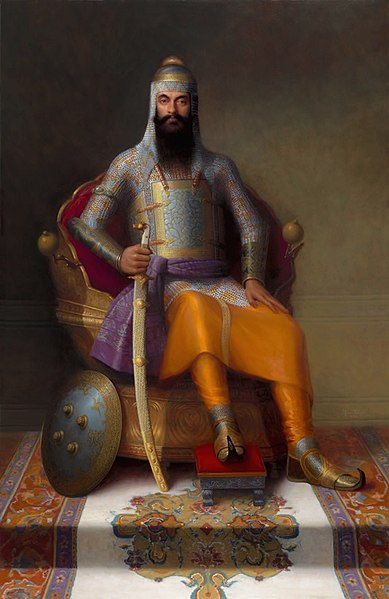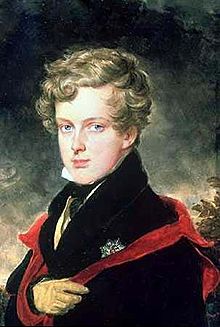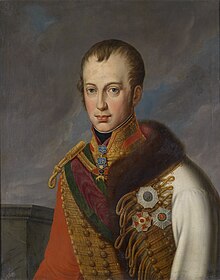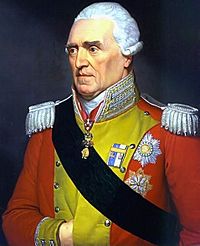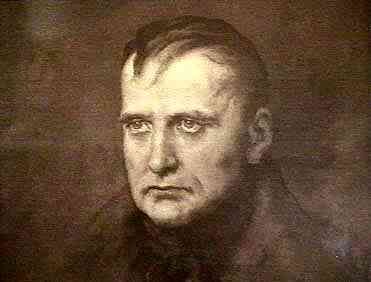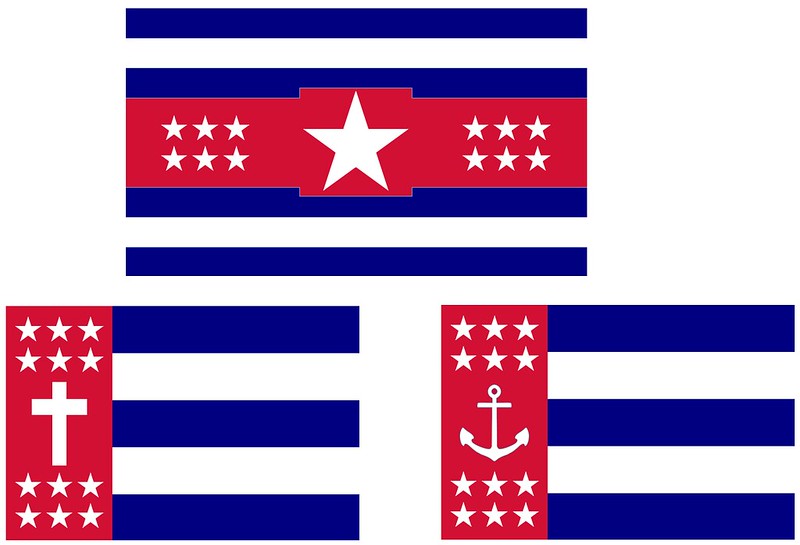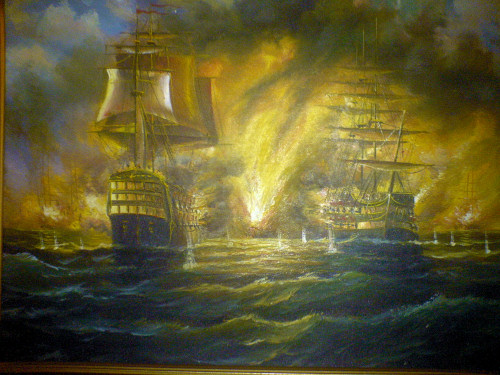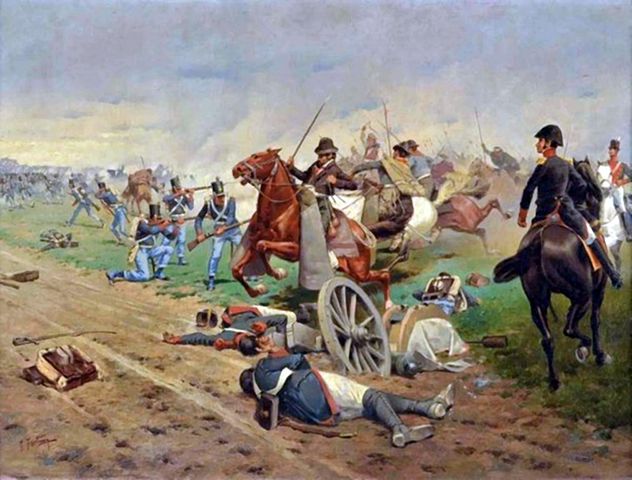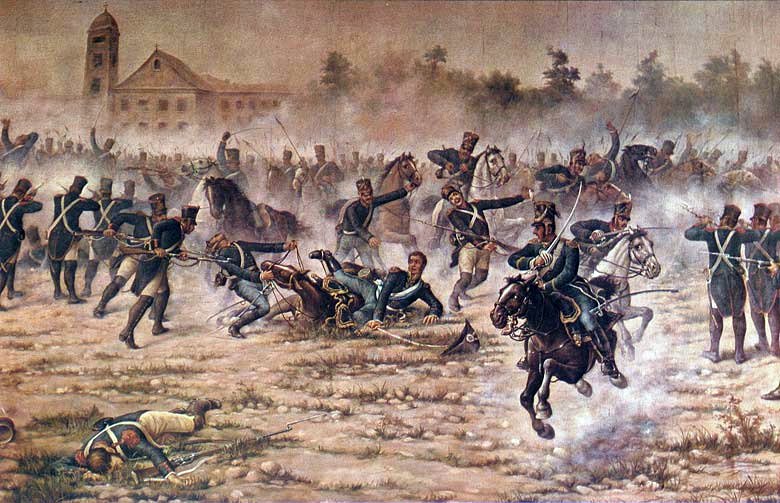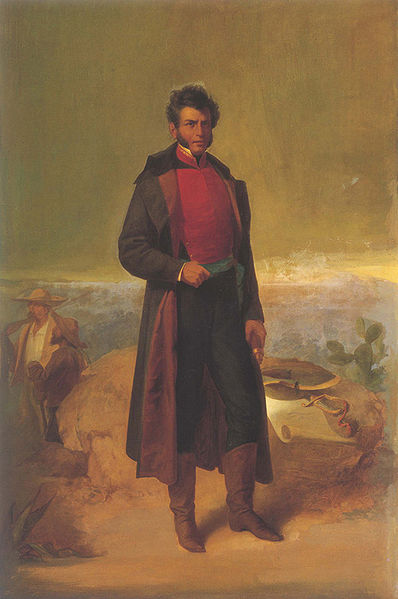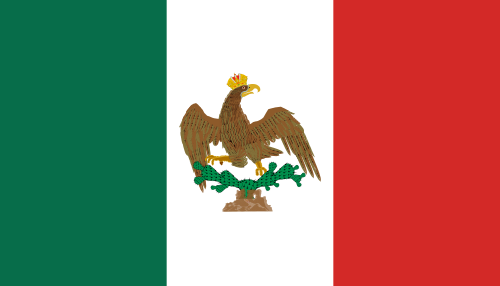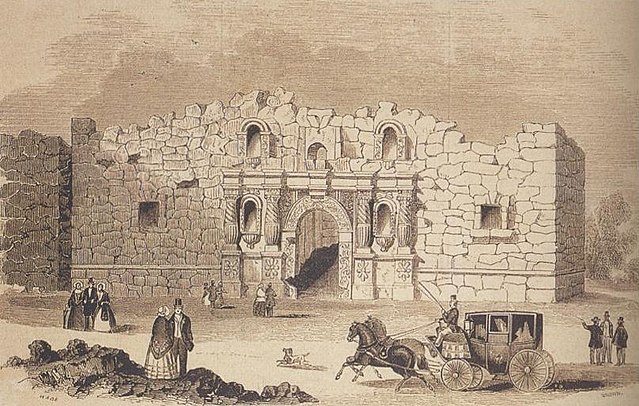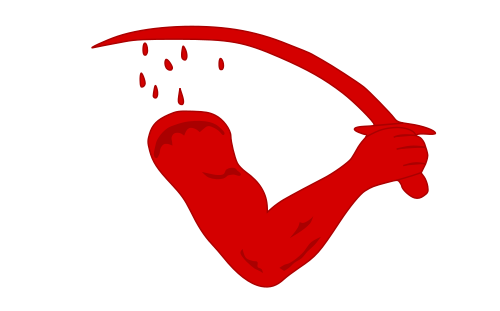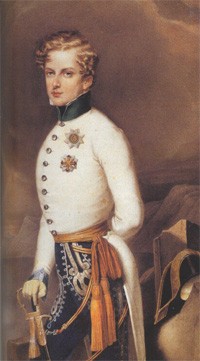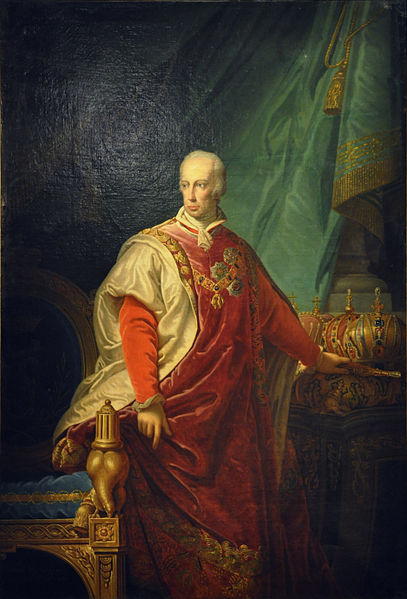When Virginian President Henry Clay and his Vice President Daniel Webster were returning home from the Congress, they were met out at sea by allied Carolinian warships reporting that there was a quickly escalating crisis on and around the Spanish island of Cuba. Spain had been attempting to send in troops after Cuba had declared independence and overthrown much of the local garrison. Spain had already been internationally condemned by France and its allies for atrocities and was also infamous for never repaying loans it owed to a large number of powerful countries; in short, almost everyone wanted to punish Spain. Virginian, Carolinian, and some patrolling French and Georgian vessels had peacefully blockaded the island, and no shots had been fired as King Ferdinand's ships dropped anchor about a half-mile out to sea. The tension was high, however, as the enemy admirals stared each other down through spyglasses and waited to see if the other would try something first.
Webster sailed on home to Virginia to make sure someone was in a position of authority there, but Clay insisted on personally taking charge of the situation and sailed down to Cuba. Just hours after Clay arrived in Havana Harbor, the
R.V.S. James Madison, a large, expensive frigate, blew sky-high extremely close to Clay's
R.V.S. Newport News. Around 296 sailors lost their lives in the horrific explosion that caused several other ships to catch fire. Immediately, screaming about Spanish treachery, Captain Bartholomew Daniels of the R.V.S. Portsmouth ordered his guns to open up on the Spanish fleet. Clay, who would have preferred to make sure that the explosion was not simply an accident, was red-faced, knowing his country was now at war with Spain. But seconds later, Clay was up on the poop deck, bellowing out "Remember the
Madison!" Several thousand "For Old Virginia!" "For Georgia!" "God Bless Carolina!" and "
Vive César!" cries came after as the Allied fleet broke formation and went full speed ahead at the shocked Spanish navy. Within minutes, the Spanish admiral and most of his officers were floating face down in the deep blue sea, and many of the Spanish sailors were disheartened and simply surrendering
en masse. Clay's men whooped cheers of victory and most of the other nations' ships went after the fleeing Spanish, but the Virginians stayed and landed at the docks. They were met with a huge celebration. The locals began acting like Clay was a god of liberty as they raised him and his men on their shoulders and carried them to the Colonial Administration Office. In front of the building where over two hundred surrendered and starving Spanish troops begging for mercy. The
Revolucion in Cuba had succeeded.
The weak Cuban government plead for Virginian protection. Clay agreed to this, and began his voyage back to Virginia to muster the armed forces for the coming war. At Christmas Time, thousands of Virginian troops landed on Cuba and the whole "Cuban nation" began to look a whole lot like a Virginian colony. This was deliberate; Clay had drawn up a plan with Webster to gradually ease the island republic from its independence ("as independence for such a place is not tenable in the long run"), and make it an occupied puppet state. With the exception of Bermuda, Virginia had no colonies or territories, but now they found themselves masters of the Grand Prize of the Gulf.
Flag of the Republic of Cuba
When the news reached Europe, everyone blamed Spain for the "act of aggression" and breaching the Pax Napoleonica. Ferdinand VII was already a hated figure, and many countries finally wanted to do away with his entire rule and give it to someone more sane and capable, and also do away with his backwards feudalism and Inquisition tactics. Austria in particular was still seething over unpaid Spanish debts, and Kaiser Franz seemed more than happy with the idea of an Allied Invasion to take Madrid and exile Ferdinand. Caesar Napoleon approved of this plan, and in the April of 1827, French troops stationed in Andorra (of which Napoleon was king) brutally crushed the under-prepared Spanish border garrison and trekked southwards further into the impoverished Iberian country. Austrian troops were sent in not long afterward, followed by soldiers from the German Confederation, Prussia, Bavaria, and other Central European countries. Dutch, Irish, and a few Scottish ships sailed to and reinforced the Portuguese Confederation and the Free City of Lisbon. A small Spanish attack at Corunna was was brutally crushed by the Dutch.
Ferdinand's court was flying into a panic. Just a French invasion would have been bad enough, but in the face of a united European assault, it seemed only a matter of time before the eminent and total defeat.
Spain's economy went directly down the abyss of no return. Revolts were widespread in New Spain. "Gran Colombia" had just declared independence and was being guarded by the French Navy. Mexico was on the verge of being liberated by French Louisiana and the Republic of Georgia. Spain's side of Haiti was about to crumble. Cuba was lost. The Dutch were moving in on the Philippines, the prized Gateway to the Orient. Gibraltar was being assaulted by Austrian soldiers, ready to capture the Gateway to Africa and the Mediterranean. The Spanish had captured a large portion of the southern part of the Portuguese Confederation, but had to abandon it to return to Madrid to build up defenses there. Louis of the Confederation and Etruria was being told that the pre-1809 borders of Portugal, with the exception of Lisbon (which would remain French), would be restored or even enlarged, a simply terrifying thought to any Spaniard. And the worst thing was that Napoleon seemed to be thinking about a grand unification of the French and Spanish empires, likely in the form of placing himself or a relative, possibly the King of Rome, on the throne. The King of Rome was half-Austrian, and making him monarch of Spain would solidify Southern Europe firmly on the French bloc, maybe even forever.
It was with these thoughts that King Ferdinand retired to his chambers in Madrid on June 8, 1827. That night, he shot himself in the face with the flintlock pistol that always sat in the top drawer of his dresser. The Last King of Spain was dead.
Ferdinand VII (1784-1827), House of Bourbon, Last King of Spain
